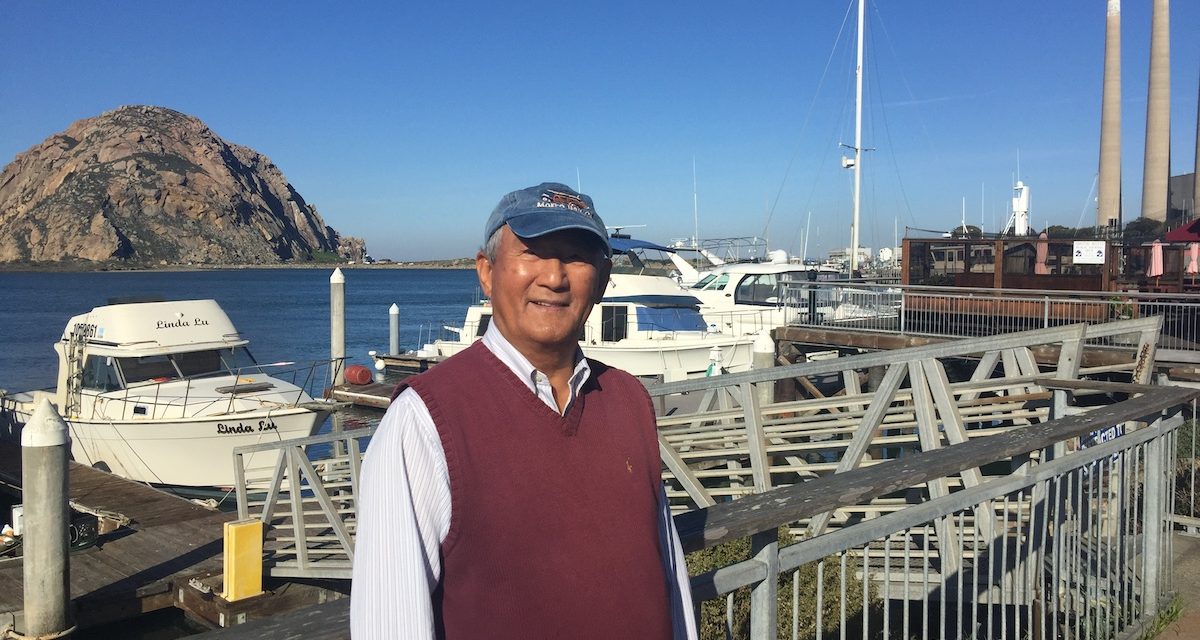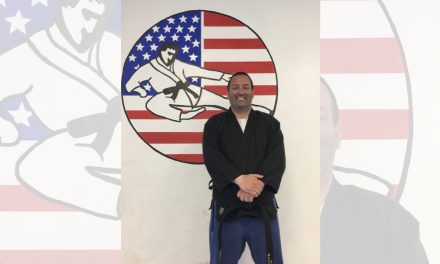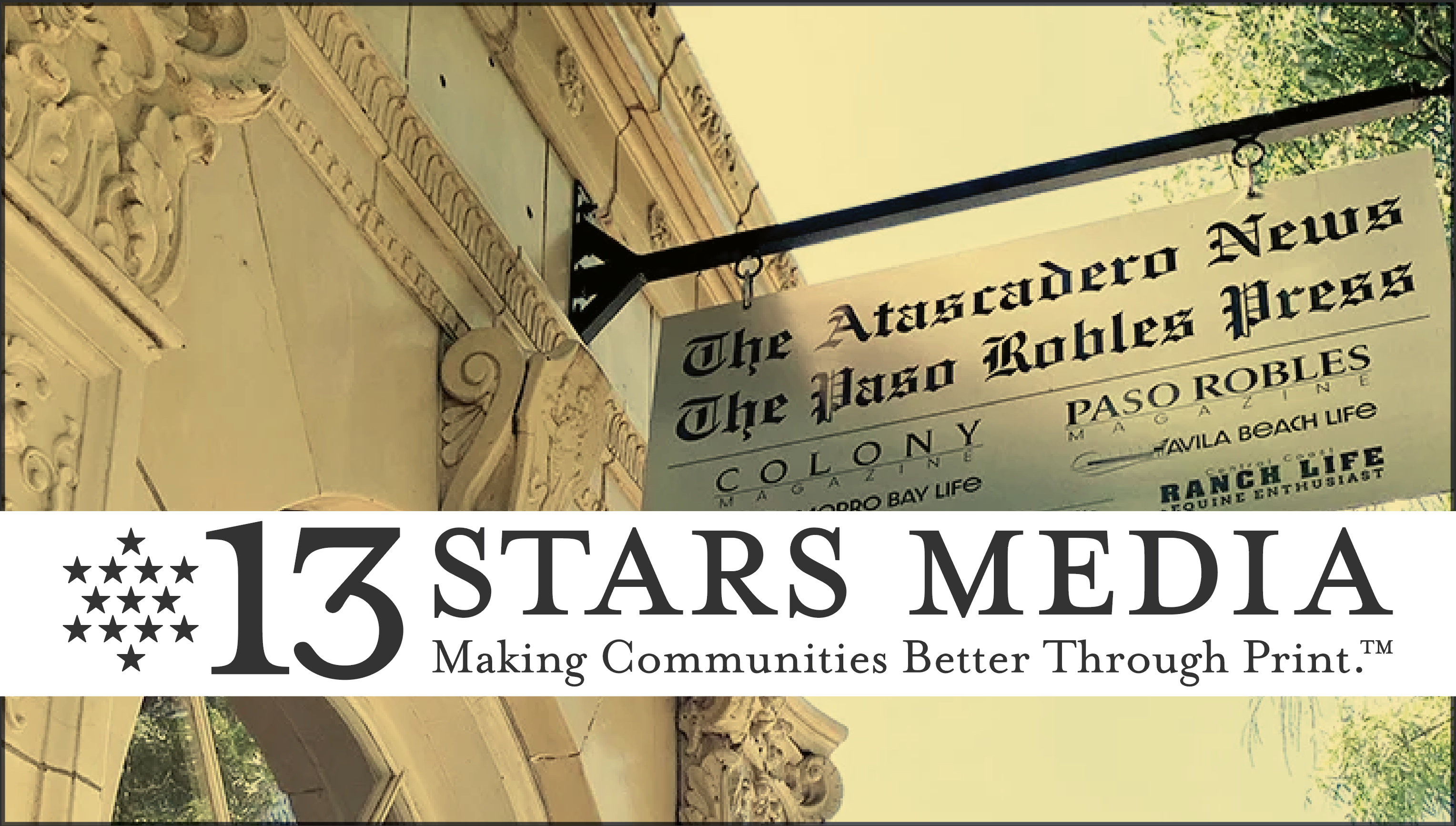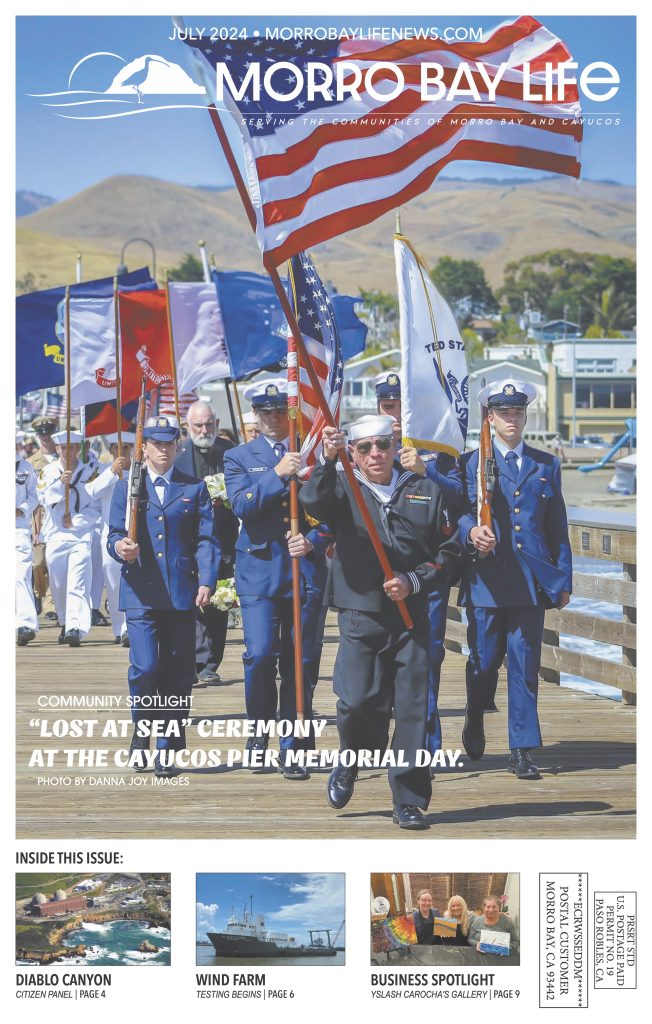Owner of Morro Bay’s The Coffee Pot restaurant shares his life’s story
By Blake Ashley Frino-Gerl
The roller coaster of life is challenging, but if we find a bit of optimism and strength in each stage we can then achieve gratitude and happiness. That appreciation for life is what got a young boy, Lu Chi Fa (nicknamed Gordon), through all his obstacles: Communist China in the 1940s as an orphan, being abused, immigrating to Taiwan and then the United States, to becoming an author and owner of The Coffee Pot in Morro Bay.
When he was 3 years old, Chi Fa’s parents passed away, and he became an orphan. None of his older siblings could take him in because they had their own families and not enough food or compassion to share.
“No arms comforted me when I was sad, lonely or fearful,” he wrote in his second memoir, “My Good Fortune.” As a child, he quickly found that there is no time to be sad. He had to be strong. “There is no other way to survive,” he adds.
Chi Fa worked to live in people’s homes, and was abused and “painfully hungry almost all of the time.”
Still, he lived with kindness and respect, to which his spirit never broke. Whenever he would get to see his older sister, who was unable to be his guardian, she told him he would find good fortune one day. It gave him hope, but another obstacle always awaited.
Chi Fa “matured a lot sooner than average people.” In 1951 at age 9, he fled to Hong Kong with other refugees, lived in crowded camps, and begged on the streets to support his abusive older brother’s family. His dream of America ignited there.
When a refugee wanted some of Chi Fa’s rice, he was hesitant to share but remembered that kindness is what “served heaven.” The man he helped had sons in America, where “people were well-fed and didn’t need to swallow sorrow to survive,” he wrote.
The man he helped said he would never forget his kindness and that someday Chi Fa would see America. He gleamed at the idea of no longer starving from hunger.
He later escaped to Taiwan quietly in the middle of the night through a dark river with other refugees. Although poverty was evident there, it was better for Chi Fa. He started school for the first time at 12 years old, in second grade. After a few months of being teased at school and by his older brother, he quit and went back to work.
Chi Fa got a job as a busboy at a club for American officers, and did his best to learn English. He worked hard to save money even after his older brother gambled it.
His “dream persisted” for America throughout his entry to the military in 1961, which is “something all boys in Taiwan had to do for two years,” he wrote. After finishing the military, he worked in restaurants, got married, and had two sons.
Chi Fa and his wife made a plan that he would go to America and that once he was settled, she and their sons would come. On the plane to America, Chi Fa wrote that “he had high hopes for the future.” It resonated with Chi Fa’s name, meaning “new beginnings.”
His wife later decided America wasn’t for her, but his two sons came to live near their father after they served in the military.
While working in Los Angeles, he got the opportunity to work in Denver for two years and apply for his green card. After obtaining his green card, he went back to Los Angeles and in 1982 had his own restaurant, China Express, for six years. A friend suggested he go to Morro Bay where the air quality is good, and life is not so fast-paced.
Upon arriving in Morro Bay, he liked the nice landscape and friendly people, but he also saw a restaurant for sale. He purchased it — The Coffee Pot — in 1989 and kept it going for 30 years.
Chi Fa’s generosity and respect has been consistent —from a young boy being sold for two bags of rice to an abusive family to being the owner of a well-established restaurant. He always served coffee to those waiting for a table. He donated proceeds from his memoirs and spoke at schools where they were a part of the required reading.
“I contributed my time to the society, to the community,” he said. “I always show my appreciation — to give back. I gave my book to needy places to pay back.”
Even though his seven employees worked with him for 15-20 years, it was difficult to keep the restaurant going during the pandemic. At 77, Chi Fa decided it was time to retire. After working for over 70 years, his retirement hasn’t halted his activity. He keeps his health and wellness thriving by meeting weekly with groups of friends, exercising daily, and being kind to himself.
When looking at the ocean in Montana De Oro, he has thought about missing the love that childhood should encompass but believes it made him stronger and able to persevere. In “My Good Fortune,” Chi Fa wrote, “life is a chance,” and one must seize opportunities to live to the fullest, but that also means proceeding with respect, strength, and peace.
Now 80 years old — an American citizen for 27 years and in America for 50 — Chi Fa has overcome so much with a great deal of knowledge.
“If you respect yourself, you will respect others,” he said. We all feel helpless at times — it is “temporary and will go away” — but if we have a good attitude, patience, and be humble, that can serve us well. He added, “if you fight, nobody wins, but if you work together, we all win.”
Feature Photo by Blake Ashley Frino-Gerl







